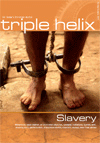At my medical school more than thirty years ago, psychiatry viewed religious faith as a sign of mental illness. William Sargent had just retired, but I once heard him lecture on his famous book, Battle for the Mind, and had to watch film of a Pentecostal service intercut with African voodoo ceremonies. The inference was obvious – belief was just brainwashing. Sargent was extreme, but that view largely prevailed in the early 1970s. Today there are probably more Christian doctors proportionally in psychiatry than in any other medical specialty. Christians working in mental health may well have spearheaded a rediscovery and revival of Christian values that could eventually influence all areas of health care.
The title is an old cliché – 'Is this patient mad, bad or sad?' Except for its relation to mild depression, 'sad' is barely mentioned. The subtitle: 'A Christian approach to antisocial behaviour and mental disorder' explains the agenda. The foreword and introductory chapter are by Professor Andrew Sims, a Past-President of the Royal College of Psychiatrists, and a spearheading pioneer.
Men behaving badly
In a well-researched and extensively referenced chapter, child and adolescent psychiatrist Elizabeth Guinness explains childhood influences on antisocial behaviour. This had an enormous effect on me. I realised that, despite my medical training, I am incredibly judgmental about 'men behaving badly'. Yet, 'of all male prisoners sentenced by the courts, 64% have ASPD' (Anti Social Personality Disorder). And where might that have come from? Aren't they just, well, bad?
But there is a 'genetic predisposition that interacts with harsh and inconsistent family life to produce vulnerability to ASPD' and 'poor impulse control means that stopping to think so as to learn from past errors is impaired; so also is postponing gratification. ..poor empathy hinders the ability to sense social disapproval or victim distress and therefore adjust behaviour'.
Each individual has been influenced by both nature and nurture. But, 'something's got to be done, doctor'. The two chapters on treatments, by Dominic Beer, a consultant psychiatrist in challenging behaviour, indicate what is available. He includes specifically Christian approaches, and challenges us all not to see anybody as beyond help.
Personal responsibility
He joins consultant forensic psychiatrist Janet Parrott in a chapter on responsibility and the mentally ill offender. The clearly biblical basis of British law on homicide is described, and as elsewhere case histories are both illuminating and encouraging.
This theme of personal responsibility is picked up again in the context of its relationship to substance abuse. Professor Christopher Cook is both an ordained Anglican minister and a researcher in the psychiatry of alcohol abuse. With a gentle tone, he asks us whether the person with an alcohol problem is really that different from us? Or is there some parallel between their temptations to drink and the struggle each Christian faces daily with temptations to sin?
Dr Roger Moss reviews the whole question of the demonic. Whatever each reader eventually concludes, we all need to take the cultural context very carefully into account, more than ever now in an increasingly multicultural Britain. Some may need to consider that the Western scientific worldview may not have all the answers. As someone who believes the occult is real but rare, I found this comprehensive chapter filled many gaps in my understanding.
Prevention is better than cure
If discovering I am judgmental was one outcome for me, then another has to be the importance of prevention. A few quotes from Elizabeth Guinness make this clear. She revisits recent research on imprinting upon the infant brain and concludes:
'This shows the vital importance of the first years of life when the brain is actually programmed and the foundations of the personality are laid. “The hand that rocks the cradle rules the world.” Crime prevention needs to start in the cradle. The mother-infant relationship is the crucial factor...the role of the family, particularly the father, is to protect it...the integrity of family life is strongly influenced by the prevailing mores. Breakdown in the social fabric of society first affects the most vulnerable and thereby the mental health of the developing children.'
We have abandoned Christian ways. The social fabric of society is indeed breaking down. The evidence reviewed in this book, so capably edited by Dominic Beer and social psychologist and theologian Nigel Pocock, shows us the way ahead. There is hope, whether for the mad, the bad, or the sad.
Mad, Bad or Sad?
A Christian approach to antisocial behaviour and mental disorder. Edited by M Dominic Beer and Nigel D Pocock. Paperback. 248 pp. Published 2006 by Christian Medical Fellowship. ISBNs 0 906747 35 X and 978 0 906747 35 3. Available on Amazon, and from CMF for £12 inclusive of postage and packing.
































